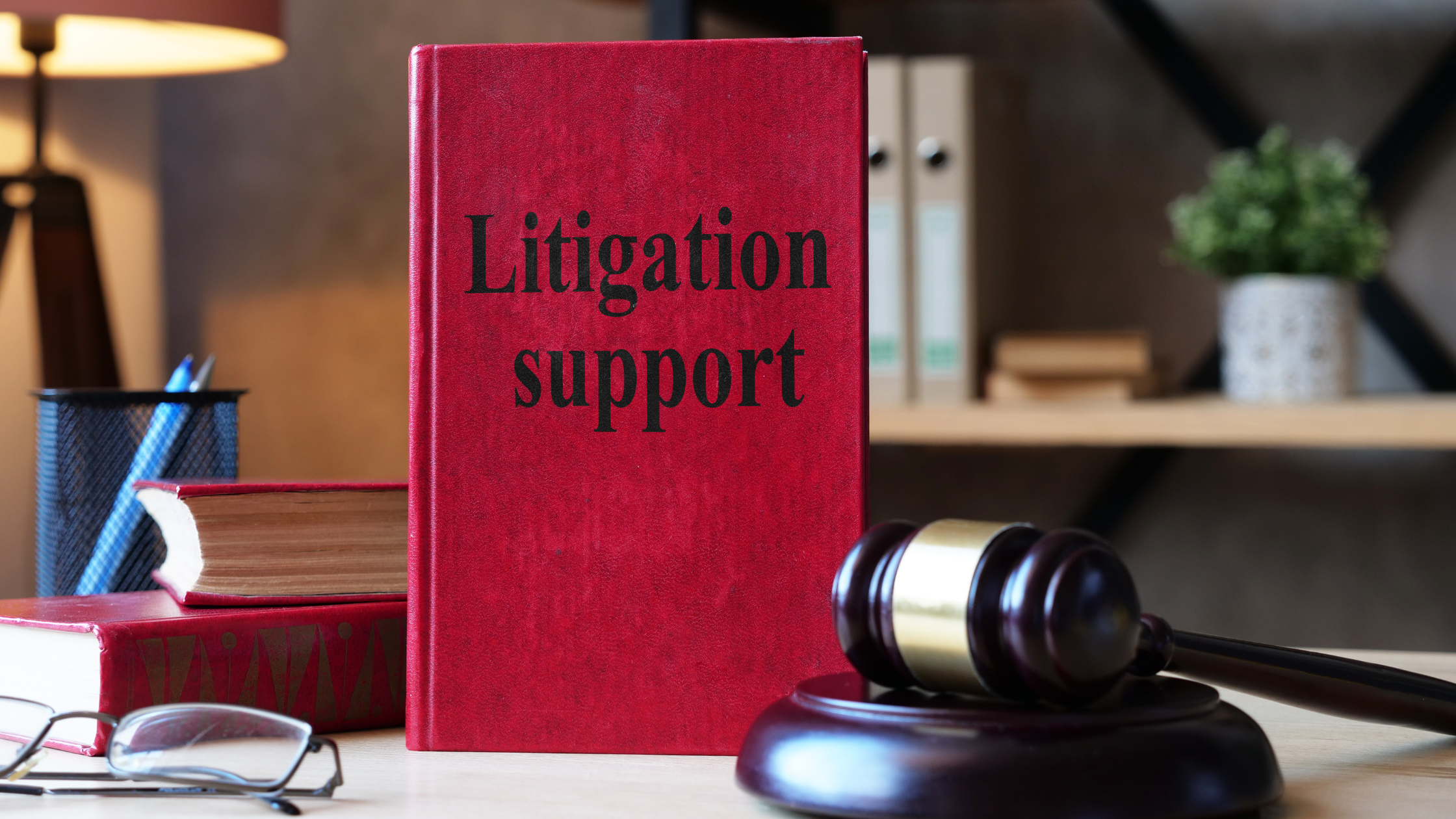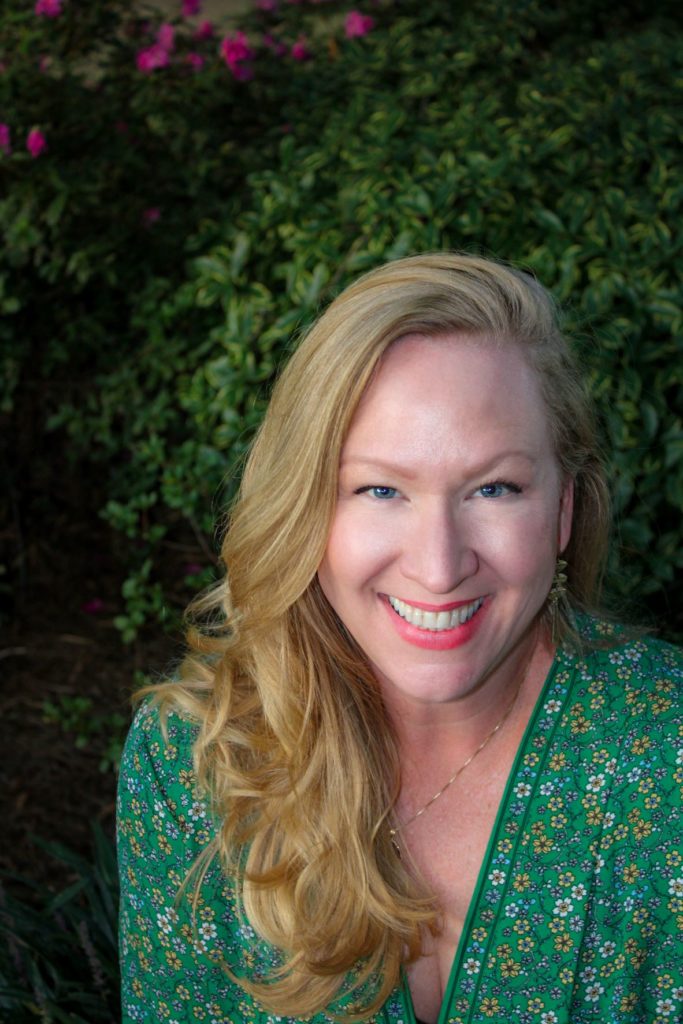In our latest podcast episode, I interviewed Kim Bookout who I’ve known for 17 years! She was one of my first new hires after taking on a paralegal manager position in 2004. Whether you’re a new litigation paralegal or have been on your litigation career path for years, Kim’s story is the perfect inspiration for welcoming mobility into your paralegal career and seeing the possibilities of where it can take you.
Kim is one of the best litigation paralegals I’ve ever met, and it isn’t just because she has excellent litigation skills. She’s also great with people, problem-solving, being professional, and staying calm under pressure. And this was all while working on a team that wasn’t known for being easy to work for. It was paralegals like Kim who made my job as a manager so much easier.
Kim now works as a solution consultant for Opus 2, a legal technology company that offers a streamlined case management solution for everything from document management to hearings, arbitrations, and trials. Kim uses her 20+ years of experience as a litigation paralegal, and litigation support professional to help legal teams all over the country streamline their litigation processes with Opus 2 technology solutions. This interview will help you see the importance of setting yourself up for career mobility and the doors it can open for your litigation career path.
Prefer Audio Instead of Reading?
Q.
What does a typical day look like for you as a solutions consultant?
A.
That’s something that I’ve had to work to define from day one. I had never had this role before, and there was no playbook for it. A lot of it was trial by fire. Typically, what my day looks like I start in the early morning hours strategizing. I think about big-picture things, five-year things that I want to accomplish. Big goals.
As the day kind of kicks up, I start having client meetings, sales demos, talking with potential clients, having meetings with existing clients, and helping them with workflow.
That’s where my litigation paralegal career background has really come in handy because paralegals deal with people who are at sometimes the most stressful point of their case. They could be at pre-trial at deposition designations, and they really need some useful tips and strategies for how to streamline that process and reduce those pain points using Opus 2, so that’s probably part of my favorite time of the day.
Learn about pursuing a career in compliance and privacy.
Q.
How do you think that your litigation paralegal career experience has helped you in your current position?
A.
I don’t feel like I could be doing this job as well as I do, without that experience. In the sales part of this, you have to kind of sell people on what that experience is going to do to help their lives and help them win cases, and that’s really hard to do unless you’ve been in their shoes. Even just telling them all of the possibilities of how a tool can help them throughout early case assessment, all the way through an appeal, being a litigation paralegal has positioned me to talk about that in a way that not everyone else could.
Additionally, I think it helps me on the product side. A lot of times there might be a little bit of a disconnect between a software developer and a practicing attorney. I feel like I’m in a great position to bridge that and talk to the developers about what a day in the life of a practitioner is really like, and then devise new solutions to help the attorneys and their case teams.
Part of being a great paralegal and now a solution consultant is doing a bit of translation work between all of those groups. And I think all paralegals understand that quite a bit.
E-discovery Boot Camp
E-discovery skills are no longer on that list of “preferred” skills when employers are hiring litigation paralegals. These skills are required now.
Don’t limit your future career security by not knowing how to manage e-discovery projects.
This e-discovery training program will help you become a master at e-discovery project management in just 5 hours!

Q.
How did your litigation support role differ from the paralegal role and what experience did that help you bring to Opus 2?
A.
There are a lot of differences. Some of it is the same in that there are a lot of people in litigation support that come from IT backgrounds that maybe don’t have that practical application that they can rely on. I had been a litigation paralegal with really good tech skills. And then when eDiscovery was really burgeoning before there were even federal rules, I was quick to adopt a lot of best practices, and really think about how to help lawyers in the eDiscovery process.
I came into litigation support with that skill set. However, the thing that I was most worried about missing was my closeness to the actual case, like being at the table, at trial, or helping prepare for depositions. Being that central figure, I felt like I was really gonna miss that. And what I found was that being in litigation support opened me up to so many more cases and so many more case teams and while I wasn’t as close to the case, I was instrumental in almost every huge litigation that was in my firm. It was a great opportunity and something that I really enjoyed.
Learn about a path to eDiscovery certification.

Q.
How did you get into litigation support? How did you find yourself transitioning from litigation paralegal to litigation support?
A.
Well, interestingly, it was a bit of a change in my personal life, that made me think about changes that I could make to my professional life. I had just had my second child and come back from maternity leave and was welcomed with the news that this case team, this partner that I’d been working with and loved for years was moving to another firm.
That was really tough for me because I wasn’t ready to move to another firm. I loved my firm, and I just had two babies at that firm. At the same time, a position for litigation support was coming up, and I certainly didn’t feel like I was qualified, but I thought I could throw my hat in. I thought I could learn and do that job and I wanted to try something new, so I picked up the phone and called that director of litigation support and said, “You know, I want this job, and let me talk to you and tell you all the reasons why I think you need me on this team. Even though I may not possess all of the technical skills that you would expect from somebody in this position, I’m a quick learner. I can learn this.”
And I ended up beating out three people that were really great candidates. I think because I was a known quantity in the firm, that might have given me a little bit of an edge. I hope so. If I hadn’t asked and saw the opportunity and thought maybe this is something that I could try, I may not be here today.
That’s exactly what it is. It’s trying. It doesn’t mean you have to build your career in that, it’s I think I’d like to give this a shot. I probably just would’ve been assigned to the next case team, or I would’ve moved to another firm and kind of started over somewhere. My life would’ve been different. It would still be fine, but it certainly would be different.
Q.
So they went to another firm, and you ask for the position. How long were you in that role?
A.
I was in that role for about seven years and during that time I learned so much. I thought I was a super technical paralegal and realized I was a very non-technical litigation support specialist. I had to up those skills.
I took the opportunity to get all of the certifications I could. If you feel like maybe you don’t have everything it takes to belong in this group of professionals, the best way to overcome that is to learn. Learn from them, learn from your team and learn from others. I got eDiscovery certifications, relativity certifications, and every kind of certification I could to continue to grow that skill set.
Take our free eDiscovery Masterclass: Why EVERY Litigation Paralegal Should Be a MASTER in eDiscovery.

Q.
Now fast forward, and you’re at Opus 2. How did you get the position at Opus 2?
A.
This was also something a little bit similar. I guess, it happened to all of us. It was the 2020 pandemic 2020 that went on for years after that maybe we’re still in. It was this outside force that made me start rethinking my career.
Is there anything else that I wanna do? I feel like I’m mastering this litigation support thing after seven or eight years. What else might there be for me? And I started really thinking about the things that I love about my day. What parts are my favorite parts? I landed on: I love supporting case teams when they’re using Opus 2. They genuinely enjoy using the software. I enjoy interacting with the support team. I wondered if that was something that I could do.
I went on their website, and they were not hiring. There were no open positions. I had a contact in the marketing department because I had done a case study with them about a year before. I actually just shot her an email and said, I’d love to talk to you. I’ve been doing some thinking, and we scheduled a call, and I told her I would love to come and work for Opus 2. What do you think about that? She said it was great timing because her next call was with the CEO. Can you send me your resume now?
The rest, as they say, is history, but there was a process, and part of that was navigating the firm I was leaving as being a very big client of Opus 2. How do you leave and make sure that everybody is still really happy at the end of the day, and that there are no hard feelings? Luckily, I had an amazing boss at the firm I was at, who was very supportive of my career aspirations, which made that process really easy for me.
I was absolutely prepared for the answer to be no, all the way until I had an offer letter. It’s always a surprise, a pleasant surprise when the answer is yes. It’s important to have a plan B, but I think putting yourself out there and asking and reaching out to people and just being honest about where you wanna go with your career is so important, and you have to have a bit of trust with people in order to do that.
Your Actionable Strategies for Increasing Your Litigation Career Path Mobility
Q.
As a litigation paralegal, it takes more than just being a great litigation paralegal to take on a role like what you have now, Kim. When we caught up a couple of weeks ago, you said that it was because of some lessons that you learned and things that you could share with others about how to have mobility in their career. Can you share a few of those with us?
A.
1. Be professional and kind to everybody.
When I first became a litigation paralegal, there was a reputation for litigation paralegals. They were very tough, very tough on vendors. It was kind of cutthroat. There was sometimes a lot of drama that was going on inside firms regarding billable hours and sharing work and sharing information. That was the culture I was raised in, and it took me evaluating that to say, that’s not who I am. That’s not who I want to be. I want to be professional and kind to everybody.
This really started changing my career when I wanted to share opportunities, limelight, and experiences. I found people were willing to help me and I got a great reputation. People wanted to work with me. That was really a turning point in my career.
When I had to pick up the phone and call that marketing person at Opus 2 and say I wanted a job, the reason she was willing to entertain that thought was because I was willing to help them in promoting their business when talking about a successful case that we had in our firm using Opus 2. Being willing to do other people favors just in life will open up a lot of doors for you.
That might be the secretary, or the mail room person, you never know who’s going to be able to help you save the day and help you become the hero.
2. Hone your skills.
The one thing that I’ve seen really successful paralegals be able to do is continue to develop their legal skills. It can be easy to get complacent and say, I know everything there is to know about this area that I practice in, or this team that I work for, but really being able to always think about, what can I do for my career? Oftentimes your firm will help you do that. So if you’re employed, let your employer pay for your professional development.
Are there any certifications that may be transferable in the future? Whether you’re a real estate paralegal, litigation paralegal, or corporate paralegal. There are outside certifications that can help you do your job in your law firm. It’s a really easy business case to make, but can also be transferred outside of a law firm if you ever decide to move. And then, if you’re not employed, or your company is not willing to make that investment, you can find free classes and webinars. That’s how I learned so much about relativity. They offered so many great webinars, and I was able to really hone my relativity skills for free until the firm decided that they would invest in the certification.
It certainly pays for itself. There are some certifications that I’ve actually taken out of my own pocket because I felt like they were so valuable either to help me do my job or to help invest in my future.
Find out about a path from paralegal to lawyer.
3. Meet People.
This one may come very naturally to me because I’m a bit of an extrovert. I know this doesn’t come naturally for everybody. Meeting people is really easy, especially inside these large firms that kind of stay in their little groups. Socialize at the firm events or go to your networking events, especially now with so many zoom opportunities, even if you’re not one to go out and mingle. Meeting people is one of the key things in inviting mobility.
This could be volunteering. There are so many legal aid things that are available, and it doesn’t even have to be legal. A lot of the volunteering that I’ve done has been for Habitat for Humanity or something else where you’ll find a lot of professionals are also there and you never know who you’re going to bump into and what opportunities might be there for you.
As a paralegal, if you’re thinking you might want to go into litigation support, start really getting to know the people in litigation support. They have the job that you think you want. Now go find out if you really want that job. Maybe it really stinks, and it’s not so great, and they’ll tell you that.
Just be willing to do favors for others, whether that’s for other paralegals or even for other groups. I’ve done some corporate work for corporate paralegals who were buried. I’ve done healthcare work for healthcare paralegals that were buried. When I’m getting ready to go to trial, and I need help with my exhibits, those people are right in my corner, helping me. Build your network of friends and professional people that you can trust and rely on.
Read our article on Paralegal Career Benefits to Participating in Your Paralegal Association.
4. Be ready.
This is probably the hardest one for me because I’m naturally a bit of a procrastinator. Being ready means keeping your resume updated. A good example of that was when I was talking to the Opus 2 representative she asked me to send her my resume. I had to kind of quickly put some finishing touches and make it look a little bit away from the eDiscovery and paralegal stuff a little bit more on the consulting side. That’s something that I probably should have already updated.
Even though I’m totally happy at Opus 2 and I can’t imagine ever leaving, if I learn a new skill or if I’m mastering something new, I update my resume with it, so I don’t have to do that later. If you’re in a firm or whatever company you’re working with, look at the job postings internally. You don’t want to be the last person to know that a new job has opened up in your firm in litigation support and you just didn’t hear about it because you didn’t check the job postings.
If it’s not within your firm and you’re looking outside, just make sure that you’re getting job updates for postings that match your skill set. If you’re really great in eDiscovery or hot seat work for trials, go ahead and start typing those skill sets into LinkedIn and see what kind of jobs are available for people with those skills. It’s not necessarily what you think. It’s not necessarily just another paralegal job. There might be a consulting opportunity for a trial company or a software company like I found. You really just never know what types of jobs are going to need the skills that you already possess.
Read our article on 15 Alternative Paralegal Career Options.
One of the skills that I think all paralegals possess that sometimes is underrated, but is the most important skill is attention to detail. Regardless of what practice area you are working in, you probably have greater attention to detail than 98% of the people working in professional jobs today, and that is a valuable skill, no matter where you go.
Learn more about how this one skill can make or break your paralegal career.
Q.
Another important interpersonal skill is being able to work for sometimes difficult people. Back when you were a litigation paralegal, you worked for a team that I would describe as not so easy to work for. I know this because I hired you to work for them. They were all very smart, super intelligent, and top lawyers, but they were also intense and worked on very high-profile cases with a lot riding on them to win them. They did a very good job at that, but with that comes intense personalities. Do you have any advice for paralegals out there who work on a team like that? How to survive?
A.
Yeah, I guess it is a bit of survival. And interestingly, I think that skill just came into play yesterday as I was on a sales call with a tough attorney, and it felt like I was being cross-examined by him. When we ended the call, the salesperson said oh, no, that was a really tough call. And I said he’s a really good attorney. It’s just a different way of looking at it and obviously not taking it personally.
I’ve definitely had my share of wiping away tears in the bathroom. I don’t know anybody in law who hasn’t had that experience, but ultimately you have to remember that this isn’t about you. Understanding that everybody’s working for the client and it’s your client as well. You want to really take that into account and do a great job because you want to get the absolute best result for the client.
When you do that, it takes a lot of that personality stuff out of it. Getting to know people on a personal level is sometimes hard to do, but even the toughest attorneys have kids and families and go on vacations. They are still human. If you connect to them, some of those same people that were kind of known for being really, really tough, I’ve had the best laughs with, the best times with, where it ended up getting invited to their homes for Christmas parties and getting to know their families. If you can get over the harshness of the moment, compartmentalize that, and say everybody’s working their hardest for the client then underneath you realize that they are just people, they realize that you are just a person and we’re all working really hard for the same goal.
Read our article: Paralegal Life: Working for a Difficult Boss for more tips.
Have questions for our guest expert? Comment below or email her at kbookout@opus2.com.

Meet our Guest Expert
Kim Bookout is a Solution Consultant at Opus 2, where she helps legal teams all over the country effectively use software to analyze key documents, build case chronologies, create deposition designations, and prepare for trial.
Prior to joining Opus 2, Kim had over 20 years of legal experience, beginning as a commercial litigation paralegal and later moving into a litigation support position.

























